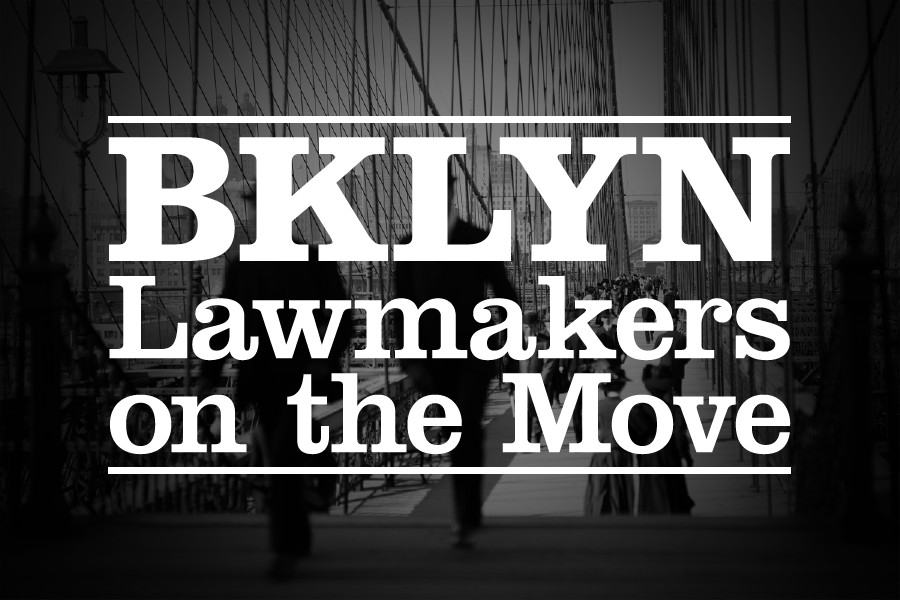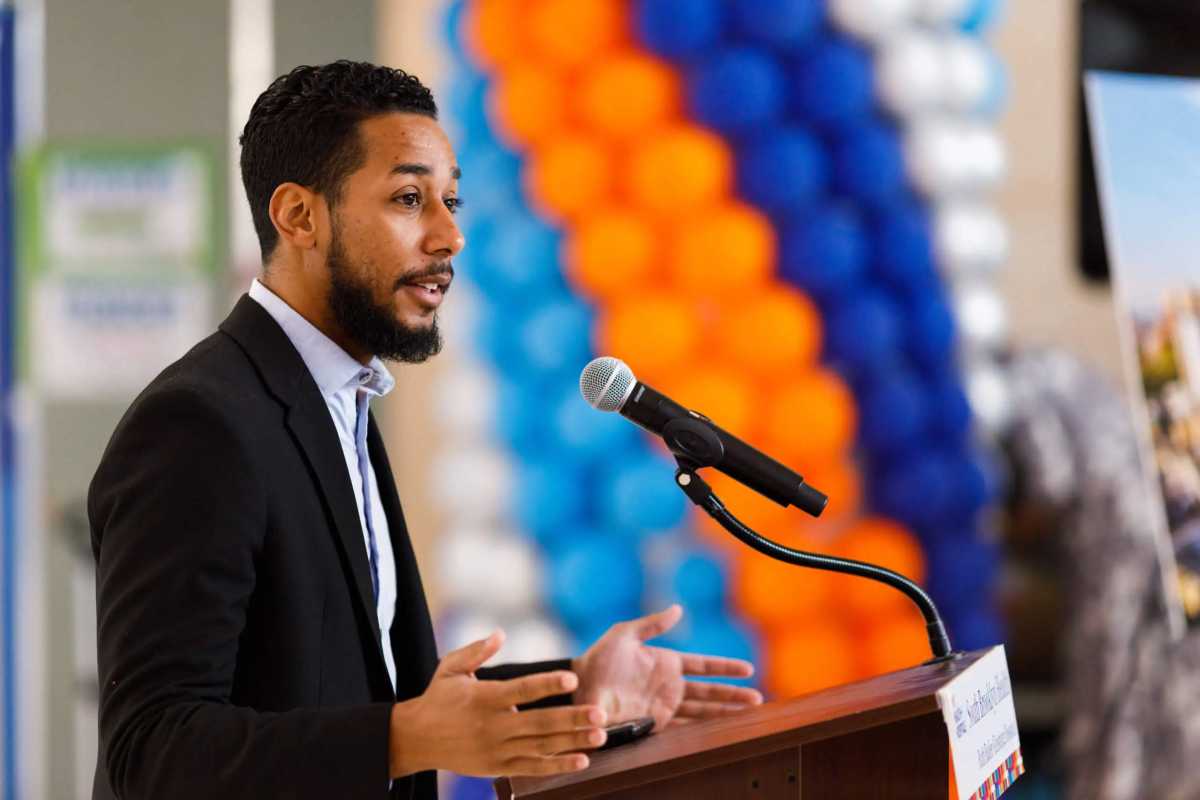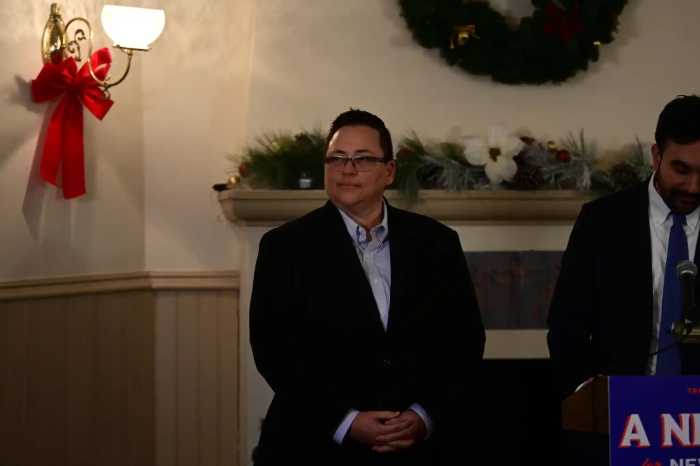Cumbo Bill Allows Texting To 911 System

City Council Member Laurie A. Cumbo yesterday saw a bill she co-sponsored that would require the Department of Information Technology and Telecommunications (“DoITT”) to create a plan that would allow the public to send digital communications including text messages, videos, and photographs directly to emergency responders using the City’s 911 system unanamously pass the council.
“From mass shootings and acts of terrorism to the rise in violence against women, we live in a tumultuous climate that requires the adaptation of text to 911 capabilities within the City of New York. With more than 8.4 million residents, our city is one of the largest municipalities in the United States that does not have an emergency communications system in place that would allow citizens to seek assistance by sending text messages, photos, and videos to 911 operators and police dispatchers without endangering their lives by alarming the perpetrator(s) of a crime,” said Cumbo.
“The passage of Intro 868 ensures that New Yorkers in dire situations will be served more effectively through the use of smart technology to create a safer and more connected city. Additionally, this bill would help expand our capacity to better communicate with youth, LGBTQ, legal and undocumented immigrants, the Deaf, speech-impaired, and mute communities. I look forward to working with the Administration, NYPD, and DoITT towards the implementation of a 21st century emergency communications system within the City of New York,” she added.
In 2015, the City logged more than 10 million calls to its 911 emergency call center. The majority or 70 percent were placed by cell phones. Unfortunately, it does not reflect the challenges faced by New Yorkers unable to make voice calls – due to disability or immediate danger – leading to significant delays in receiving emergency help. DoITT later released a Request for Information (RFI) to assess a full range of options on the path to implementation.
Tryeger Offers Free Electronic Waste Removal

City Council Council Member Mark Treyger (Bensonhurst, Gravesend, Coney Island) announced yesterday that his office is offering free electronic waste removal and recycling for seniors and disabled residents in his district.
Residents interested in having their electronic waste picked up at their homes and recycled can contact Treyger’s district offices at (718) 307-7151 or (718) 373-9673.
Staff from Treyger’s office will work with Wildcat Service Corporation, one of the organizations that Treyger allocates funding to as part of the City Council’s Cleanup NYC initiative, to arrange a pickup of the item(s).
Treyger also recently announced that he has enlisted Wildcat Service Corp. to clean up and paint over any instances of graffiti in his district that is reported to his office by residents.
“We all want to be mindful of the environment, and we all want to do our part to keep our planet clean, but it isn’t always easy to do so for our seniors or people with disabilities who may have difficulty moving large pieces of equipment or traveling to designated e-waste recycling locations. Now, getting rid of your old electronic equipment and helping the environment will be as easy as picking up the phone. Cleanup NYC is one of the most successful programs created by this City Council, and this is yet another great example why,” said Treyger.
Squadron Bill Relaxes Civil Service Work Schedules

State Senator Daniel Squadron (Northern Brooklyn) and Queens Assemblymember Nily Rozic announced passage of their bill yesterday to increase flexible working arrangements for the state’s civicl service workers by requiring regular feasibility studies with an active focus on ways to expand flexible schedules within state agencies (S7324/A9870).
The Squadron/Rozic bill requires the President of the Civil Service Commission to annually report on flexible work schedules in state agencies, with an emphasis on ways to expand eligible positions, and incorporate more flexible arrangements within state agencies. Flexible work schedules aim to increase work-life balance, provide personal and family-related flexibility, and help reduce rush-hour commuting congestion.
“Flexible work arrangements allow employees to better balance work, family, and personal commitments, and employers to better match staff schedules with their needs” said Squadron. “This bill is one step in providing the kind of flexibility that increases quality of life and productivity.”
The bill passed the Senate and Assembly with bipartisan support and will now be sent to the Governor for approval.
Cymbrowitz Bills Would Enhance Adult Day Programs

Assemblyman Steven Cymbrowitz (Sheepshead Bay, Manhattan Beach, Brighton Beach), Chair of the Assembly’s Aging Committee, last week announced the passage of two bills he sponsored that would enhance social adult day programs in the State and work to ensure consistency in the quality of services provided.
One bill (A.9130) would ensure that all social adult day programs operating in the State comply with the rules and regulations established by the State Office for the Aging (SOFA).
“Currently, social adult day programs are regulated directly by SOFA only if they receive funding from that office,” Cymbrowitz explained. “Although programs that are part of a managed long-term care plan network are subject to their contracts, which may change depending on how the Department of Health chooses to regulate the Medicaid program, social adult day program operators who do not interact with the government are free from agency regulation and oversight.”
The absence of an across-the-board policy of regulation and oversight has led to concerns across the state about adult day programs that may operate with insufficient staffing and provide inadequate services to clients.
“Unfortunately, families have no way of knowing what kind of program they are sending their loved ones to. Nor should they be expected to. These families have a right to expect a decent quality of care and consistency of service when entrusting their vulnerable loved ones to a social adult day program,” said Cymbrowitz.
“There are many programs operating across the state that follow the regulations to provide appropriate services and enrich the lives of their participants. All programs should be required to operate under these same rules and standards,” he added.
The bill has passed both the Assembly and Senate, where it is sponsored by Sen. Diane Savino (Coney Island/Staten Island), and will be sent to Governor Cuomo.
The second measure, (A.7588), would expand opportunities for enriched social adult day services to be provided in the absence of grant funding.
“The enriched social model has been successful in other states and was codified in New York State law as a demonstration program in 2009,” said Cymbrowitz.
Enriched and optional services would include health education, counseling, dispensing of medication by a registered nurse, and other services that improve quality of life by extending independence for the seniors attending the programs.
“By allowing a social adult day program to provide enriched services and/or optional services without a grant, we will be able to make these services available to seniors who need it without placing a mandate on any program that cannot afford to provide these services,” he said.
This bill passed both houses and was also sent to Cuomo for his signature.
Jaime Williams Gets Powerful Labor Endorsement

Freshman Assembly Member Jaime Williams (Canarsie, Mill Basin, Bergen Beach, Marine Park, Gerritsen Beach) announced yesterday that the politically powerful 1199 SEIU, United Healthcare Workers East union has endorsed her for re-election this year.
The endorsement was based on Williams’ commitment to the issues that matter to 1199 members including quality health care for all, affordable and accessible housing, immigration reform and a pathway to citizenship, and social justice and human rights for all.
“I’m pleased to receive the support of 1199’s dedicated healthcare workers, who are on the front lines every day, caring for and watching out for our community,” said Williams. “1199SEIU plays a critical role in ensuring good jobs for our economy, and the highest standards of care at our hospitals, nursing homes and for the frail and elderly in their homes. It is an honor to work side by side with the 1199 members in my district and throughout New York and to advance the 1199 Action Platform.”
Mosley Criticizes Supreme Court Decision On Search & Seizure

Assemblyman Walter Mosley (Fort Greene, Clinton Hill, Prospect Heights, Crown Heights) yesterday lambasted Monday’s Supreme Court ruling that police can seize evidence from an unconstitutional search if they first discover the suspect has one or more outstanding arrest warrants.
The court ruled in a 5-3 vote that even if police violate the Constitution by stopping someone without suspicion, an arrest warrant entitles them to conduct a search. In that circumstance, they said, there is no “flagrant police misconduct.”
The decision was controversial because in some cities thousands of people have arrest warrants pending against them, mostly for traffic violations as insignificant as unpaid parking tickets.
Mosley said the decision will disproportionately impact minority communities.
“Yesterday’s decision by the Supreme Court to allow evidence collected after an illegal police stop will codify a dangerous precedent in our criminal justice system. The courts will now excuse an officer of an illegal stop and will admit into evidence anything he or she happens to find by searching you absent reasonable suspicion or probable cause,” said Mosley.
“This new threshold established by the Supreme Court for conducting a search is a clear violation of the 4th Amendment that will more than likely disproportionately subject low income minority communities to harsher treatment and scrutiny in a time when police/community relations need to be strengthened.”










